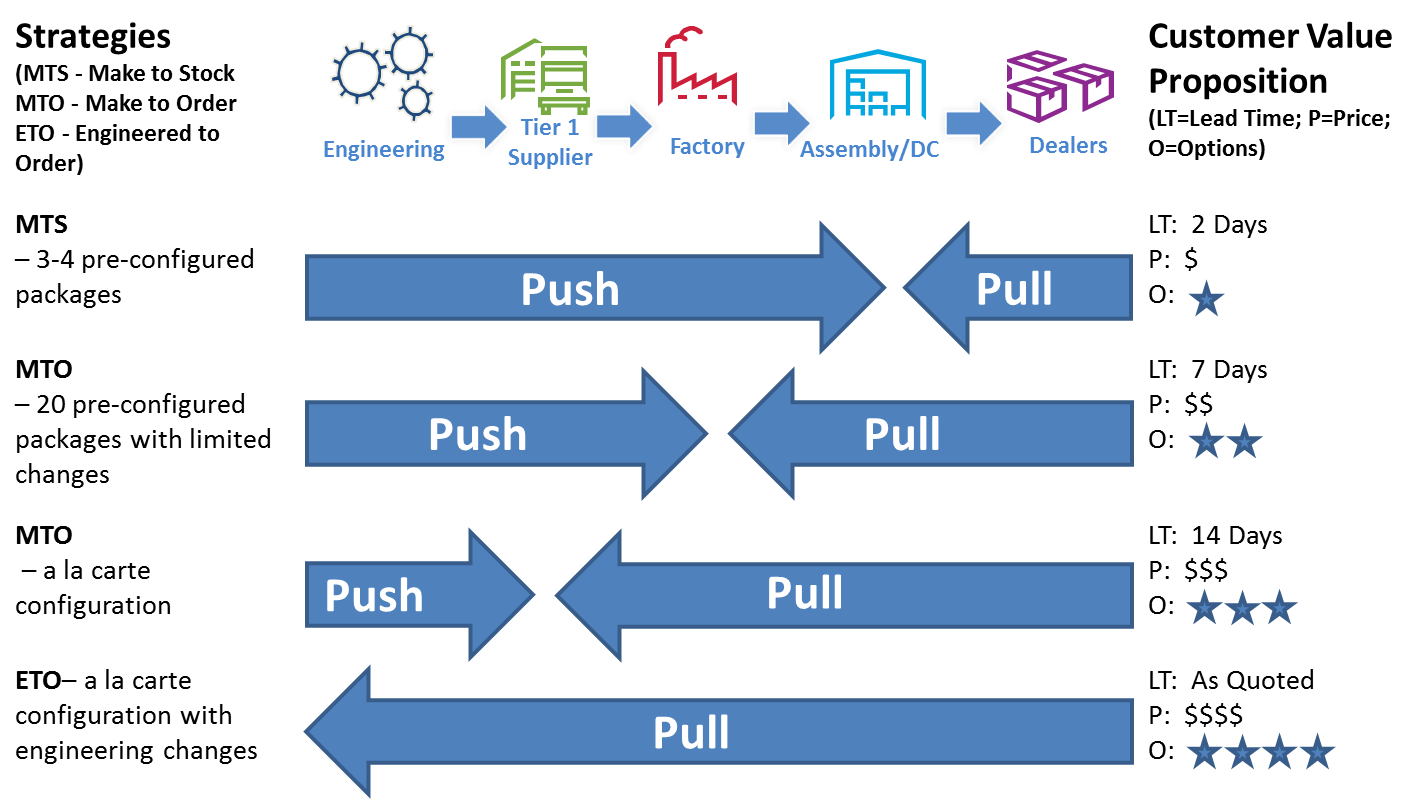Building The Good Life: Strategies For Sustainable Well-being

Table of Contents
Cultivating Meaning and Purpose
Sustainable well-being is deeply rooted in a sense of meaning and purpose. Understanding and aligning your life with your core values is the first crucial step.
Discovering Your Values
Identifying your core values – the principles that guide your decisions and actions – is paramount for a fulfilling life. These values act as a compass, directing you towards choices that resonate with your deepest self and contribute to your overall sense of well-being.
- Value Exploration Exercises:
- Self-reflection: Take time for quiet contemplation, reflecting on moments of joy, pride, and satisfaction. What qualities or principles were present in those experiences?
- Journaling: Regularly write about your experiences, noting what matters most to you and the impact of your actions.
- Values clarification: Utilize online resources or worksheets designed to help you identify and prioritize your values.
Aligning your actions with your values creates a strong foundation for long-term happiness. When you live authentically, in accordance with your beliefs, you experience a deeper sense of purpose and fulfillment, contributing significantly to your sustainable well-being.
Setting Meaningful Goals
Once you've identified your values, setting meaningful goals becomes easier. These goals should be SMART: Specific, Measurable, Achievable, Relevant, and Time-bound. They should also align with your core values, contributing to your overall sense of purpose and accomplishment.
- Examples of Meaningful Goals:
- Personal growth: Learning a new skill, improving a weakness, pursuing a hobby.
- Contribution to society: Volunteering, mentoring, advocating for a cause.
- Creative pursuits: Writing, painting, playing music, expressing yourself creatively.
Breaking down large, ambitious goals into smaller, manageable steps prevents overwhelm and fosters a sense of progress, boosting motivation and contributing to your sustainable well-being journey. Celebrate each milestone achieved to reinforce positive feelings and maintain momentum.
Nurturing Physical and Mental Health
Sustainable well-being isn't solely about mental fortitude; it requires a holistic approach encompassing physical health as well. The mind and body are inextricably linked; neglecting one will inevitably impact the other.
Prioritizing Physical Well-being
Prioritizing your physical health is fundamental to achieving sustainable well-being. This involves:
- Key Aspects of Physical Health:
- Regular exercise: Aim for at least 150 minutes of moderate-intensity aerobic activity per week.
- Healthy diet: Focus on nutrient-rich foods, minimizing processed foods and sugary drinks.
- Sufficient sleep: Aim for 7-9 hours of quality sleep per night.
- Stress management: Incorporate stress-reduction techniques into your routine.
Mindfulness practices such as meditation or yoga can significantly reduce stress and enhance mental clarity, creating a positive feedback loop between physical and mental well-being.
Protecting Mental Health
Mental wellness is just as crucial as physical health. Prioritizing mental health involves:
- Strategies for Mental Well-being:
- Seeking professional help when needed: Don't hesitate to reach out to a therapist or counselor if you're struggling.
- Practicing self-compassion: Treat yourself with kindness and understanding, particularly during challenging times.
- Building strong social connections: Nurture relationships with supportive friends and family.
Developing healthy coping mechanisms – strategies for managing stress and adversity – is crucial for navigating life's inevitable challenges and maintaining sustainable well-being.
Building Strong Relationships and Social Connections
Humans are inherently social creatures. Strong relationships provide emotional support, a sense of belonging, and contribute significantly to overall well-being.
The Importance of Social Support
Meaningful connections with family, friends, and community are essential for sustainable well-being. These relationships offer:
- Benefits of Strong Relationships:
- Emotional support during challenging times.
- A sense of belonging and connection.
- Increased happiness and life satisfaction.
- Improved resilience to stress.
Social interaction positively impacts both mental and emotional health, fostering a sense of purpose and contributing significantly to a fulfilling life.
Nurturing Healthy Relationships
Cultivating and maintaining healthy relationships requires consistent effort and conscious choices. This involves:
- Key Elements of Healthy Relationships:
- Effective communication: Expressing your needs and listening actively to others.
- Conflict resolution: Learning healthy ways to navigate disagreements.
- Empathy: Understanding and sharing the feelings of others.
- Active listening: Paying attention and responding thoughtfully to what others are saying.
Investing time and energy in your relationships is an investment in your overall well-being. Strong, supportive connections provide a buffer against stress and enhance your sense of belonging and happiness.
Practicing Mindfulness and Gratitude
Mindfulness and gratitude are powerful tools for enhancing well-being, promoting positive emotions, and fostering resilience.
The Power of Mindfulness
Mindfulness practices cultivate self-awareness and reduce stress by anchoring you in the present moment.
- Mindfulness Techniques:
- Meditation: Focusing on your breath or a guided meditation.
- Deep breathing exercises: Slow, conscious breathing to calm the nervous system.
- Mindful movement: Paying attention to your body as you move, such as during yoga or walking.
Being present in the moment helps you appreciate everyday experiences and reduces the impact of negative thoughts and worries, contributing directly to sustainable well-being.
Cultivating Gratitude
Practicing gratitude shifts your focus towards the positive aspects of your life, enhancing happiness and well-being.
- Cultivating Gratitude:
- Keeping a gratitude journal: Regularly writing down things you're grateful for.
- Expressing appreciation to others: Verbally expressing thanks to those who support you.
- Focusing on positive aspects: Consciously shifting your attention to the good things in your life.
Gratitude fosters positive emotions, strengthens relationships, and promotes a more optimistic outlook, contributing significantly to a life of sustainable well-being.
Conclusion
Building sustainable well-being requires a holistic approach encompassing meaning and purpose, physical and mental health, strong relationships, and the practice of mindfulness and gratitude. These interconnected strategies work synergistically, creating a foundation for a life rich in purpose, meaning, and lasting contentment. Remember, creating a truly fulfilling life is a journey, not a destination, and consistent effort in these areas will lead to greater happiness and lasting contentment. Start building your own path towards sustainable well-being today by incorporating these strategies into your daily life.

Featured Posts
-
 Blame Game Escalates In Spain Following Blackout Iberdrola Targets Grid Operator
May 31, 2025
Blame Game Escalates In Spain Following Blackout Iberdrola Targets Grid Operator
May 31, 2025 -
 Building The Good Life Practical Steps For Fulfillment
May 31, 2025
Building The Good Life Practical Steps For Fulfillment
May 31, 2025 -
 Hangtown Motocross Chase Sexton Injury Update And Race Analysis
May 31, 2025
Hangtown Motocross Chase Sexton Injury Update And Race Analysis
May 31, 2025 -
 Ais Learning Process Why Responsible Development Is Crucial
May 31, 2025
Ais Learning Process Why Responsible Development Is Crucial
May 31, 2025 -
 Thursday Nights Baseball Action District Titles Playoffs And College Tennis
May 31, 2025
Thursday Nights Baseball Action District Titles Playoffs And College Tennis
May 31, 2025
